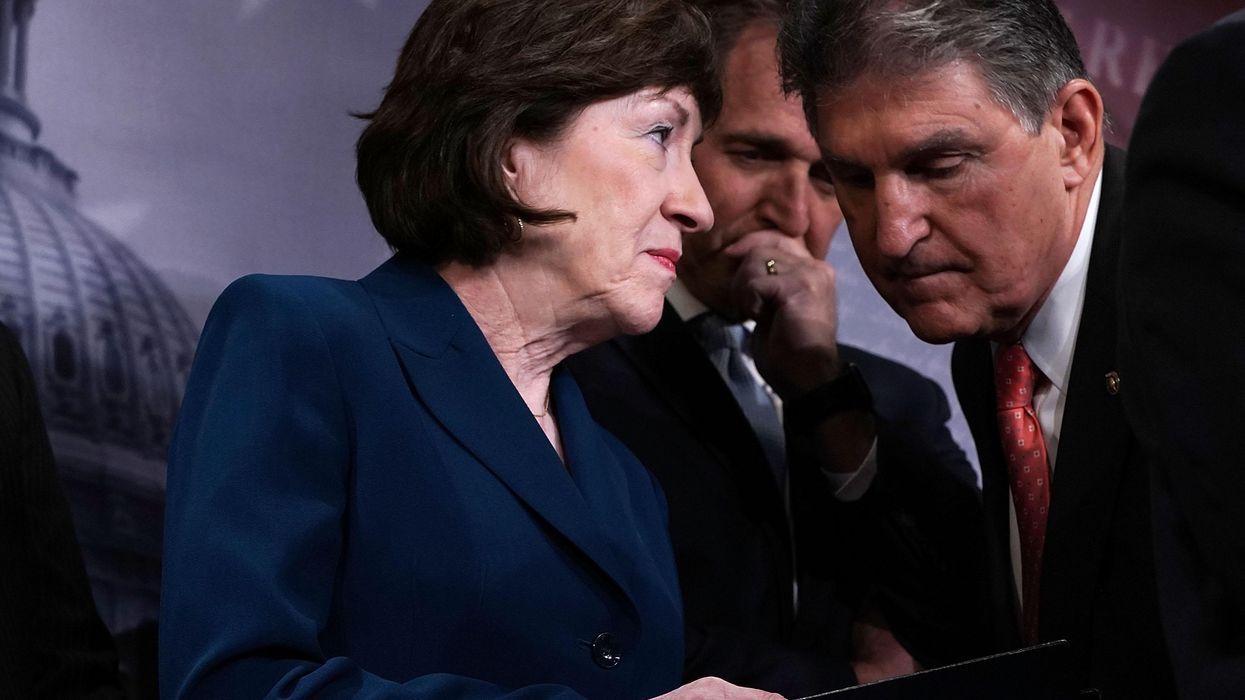Johnson is executive director of the Election Reformers Network.
A massive 11th hour spending bill stuffed with thinly vetted backroom deals might seem proof of our political dysfunction. But the omnibus bill approved by Congress last week has democracy fans cheering – because it includes changes to presidential vote counting that could literally save our democracy. Thankfully, the old Electoral Count Act, a misguided law governing presidential electoral votes, has been fixed, blocking the dangerous scenarios that emerged in 2020 of a loophole-enabled coup d’etat.
But there are even bigger reasons to cheer ECA reform. Understood broadly, this reform demonstrates how to fix dysfunction not just for presidential elections but throughout our election system.
ECA reform is usually discussed in narrow procedural terms: higher thresholds for Congress to object to electoral votes and clarification of the vice president’s purely clerical role during vote counting. But these changes are really about removing dangerous partisan conflict of interest. The flaw of the Electoral Count Act is the chance it created for results-altering power to be in the hands of state legislatures, governors, the vice president or members of Congress – who all have direct political interests at stake. Now, except for narrow areas appropriate to Congress’ role, any dispute over who won will end up where it belongs: in courts of law, the institution best able to weigh evidence and render judgment.
Fundamentally, this reform reassigns a critical function in our democracy to the institution best equipped to handle it and least compromised by partisan motives.
In areas such as partisan redistricting, party-connected leadership of election administration and partisan roles in certification of results, the United States has dangerous conflicts of interest interwoven through its election system. And in each of these areas, ECA reform helps illuminate paths ahead.
With redistricting, for example, most states give control over map-making to the majority party in the state legislature. But legislators are doubly conflicted: They want maps that help their side win more seats and help them win reelection. Because of such conflicts, all other major democracies that use single-member districts have switched to redistricting by independent commission, as some U.S. states have done as well.
Recent elections have focused attention on similar conflicts of interest in who controls election administration. The rise of election-denier candidates for secretary of state in 2022 illustrated the dangers of a system that can give the leading role over elections to an individual openly planning to help one side win. The United States is the only modern democracy where such a scenario is imaginable.
The U.S. is also one of the very few democracies to involve party nominees in certifying results. Just as ECA reform takes decision-making over contested presidential results out of the most partisan hands, similar change is needed to how results are certified at state and local levels, something achieved this year in Michigan.
States are starting to address these issues of partisan conflicts of interest, but we need congressional action to achieve meaningful scale. This is particularly true with redistricting.
Congress tried to end partisan gerrymandering last year, but the effort failed, in part because with redistricting about to begin it was clear which side would lose more seats from fairer maps. By contrast, the next redistricting cycle is eight years off, years that could see considerable change in party control of state legislatures.
That uncertainty about winners and losers creates opportunity. Susan Collins, Joe Manchin and others in the Senate who crafted the bipartisan ECA reform should start working now to require independent redistricting for federal elections starting with the next census. Partisan gerrymandering deeply damages our democracy, and state-level response is now threatened by the independent state legislature theory being considered by the Supreme Court. Polls continue to show strong bipartisan support for ending gerrymandering, and Congress clearly has the power to do so for federal elections.
Collins and colleagues could also help mitigate Americans’ growing distrust in election administration by requiring states to establish guardrails around results certification and between political parties and state chief election officers (the secretaries of state in most states).
It may seem naïve to expect congressional action on these issues with Republicans about to take control of the House. But the bipartisan ECA reform illustrates the collective recognition that both sides are at risk from partisan self-dealing by the other. Furthermore, voters clearly sent a pro-democracy message in the midterms, increasing political incentive for action. It will take longer for the House to get on board, but bipartisan action early in the Senate can help that process.
The bottom line is that ECA reform is a huge win for election rules that help put country over party. The people are ready for more.




















